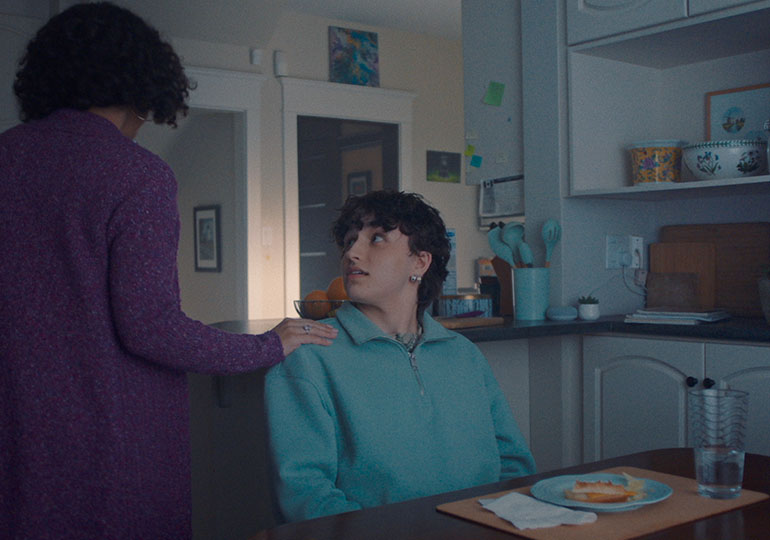Sadness. Happiness. Fear. Hope. Anger. Peace. We all experience so many feelings. Some we may welcome and want to have. Others we may be uncomfortable with and try not to have. But have you ever thought to yourself, “What are feelings, really?” Learning how to actually feel feelings (not just have them) can support your well-being. On this page, you can watch an animated video about emotions, including why it’s important to allow yourself to experience them, how you can work with them and how you might take care of them to unlock hope in your world.
It may be helpful to note that some people refer to their feelings as “emotions.” Therefore, Kids Help Phone uses these terms interchangeably throughout this story.
When I started texting with you, I was sobbing on the bathroom floor, feeling hopeless, helpless and afraid. Thank you for calming me down and easily validating my emotions based on what is happening in my life at the moment.
— person contacting Kids Help Phone
So, what are feelings? Watch this video for tips to navigate them.
In this video from AboutKidsHealth and Kids Help Phone, you can learn about:
- what emotions are and why they’re all important
- the differences between having and experiencing feelings
- ways to take care of your emotions and well-being
- strategies to work through emotions in the future
How to feel feelings.
Feelings are something we all experience. Sadness, happiness, fear, hope, anger, peace. These are just a few examples of the thousands of different feelings we might experience over our lifetime.
As humans, we spend most of our time thinking about or talking about our feelings, instead of feeling them. Our feelings are on our minds a lot, but having feelings and actually feeling them are two different things.
So what are feelings and why is feeling your feelings important?
Feelings are actually messages that your body and mind are sending you about how you are emotionally experiencing something. That means that feelings are actually never right or wrong or good or bad. They are just a reflection of the sensations that are happening in the moment.
Sometimes we may have lots of different sensations or feelings at the same time. We may often ignore or try to get rid of feelings we don’t like. We may also cling too hard or chase the feelings that make us feel good. Both of these approaches can affect our ability to see things clearly. And what you do with feelings can have an impact on other areas of your life.
Trying to pretend that feelings aren’t there, or to distract yourself, doesn’t make them go away. They’re already here. Instead of trying to get rid of your feelings, it may be helpful to identify and care for your feelings. Just like a text, you have options for what you’d like to do with it when you get the notification. You can read it. Not read it. Respond. Not respond. You can also wait until you have better reception. What’s important is to recognize that a text came in and make a decision.
Like a text, we don’t need to react to every feeling right away. Maybe you’re doing something really important. Or maybe you don’t have the energy to deal with it in this moment, but do consider coming back to it later.
It can be easier to let them go once the feelings have said what they needed to.
Feelings are things that can tell you that something matters to you. What we value can make us feel vulnerable. If we become numb to our feelings, it can dull all of our experiences. The uncomfortable ones and the incredible ones. When we allow ourselves to feel blue in sad moments, we also allow ourselves to feel true joy in happy moments.
Ignoring or pushing away our feelings can lead to coping strategies that may be harmful to ourselves or others, like taking feelings out on others, avoiding those around you, disordered eating and substance use. Constantly trying to break away from feelings can be exhausting. It may be helpful to experience temporary discomfort from our feelings than to develop long-term unhelpful habits.
Remember, feeling your feelings takes practice, but with time effort and a little patience, caring for our feelings and working with them will become easier.
Kids Help Phone would like to thank AboutKidsHealth for collaborating with us, sharing this video answering the question, “What are feelings?” and supporting youth mental health and well-being across Canada.







